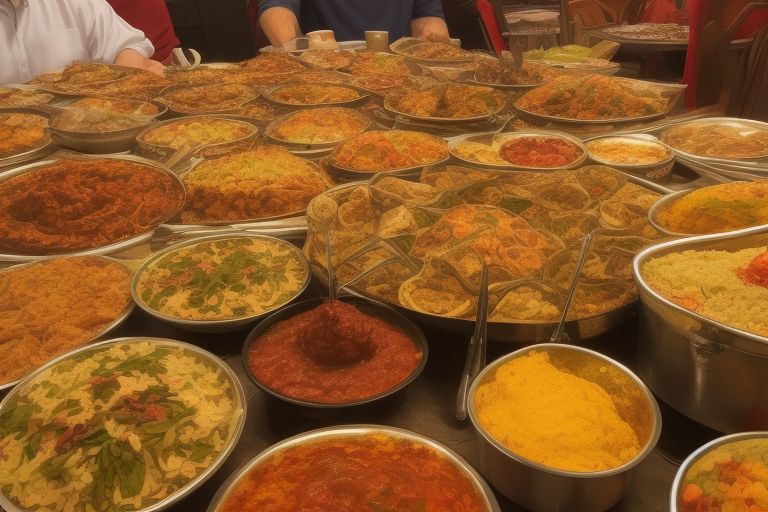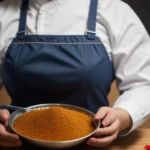
Arab cuisine captivates the world with its rich history and diverse flavors, shaped by centuries of cultural exchange and culinary innovation.
Influences Shaping Arab Culinary Delights:
Arab gastronomy reflects a fusion of Mediterranean, Middle Eastern, and North African influences, driven by historical trade routes and cultural exchanges. Islamic dietary laws also play a pivotal role, guiding food preparation and consumption.
Spice and Ingredient Symphony:
Spices are the soul of Arab cuisine, adding depth and complexity to dishes. From cumin to cinnamon, a variety of spices elevate Arab culinary creations. Fresh herbs and ingredients like parsley, mint, and couscous contribute vibrant flavors and textures.
Mezze: A Prelude to Culinary Delights:
The tradition of mezze offers an array of small plates, including hummus, baba ghanoush, and falafel, setting the stage for a culinary journey of discovery.
Culinary Icons of Arab Cuisine:
Iconic dishes such as kebabs, shawarma, tagine, and baklava showcase the diversity and richness of Arab gastronomy.
Trailblazing Arab Culinary Maestros:
Noteworthy chefs like Yotam Ottolenghi, Reem Assil, and Anissa Helou have propelled Arab cuisine onto the global stage with innovative interpretations and expertise.
Festive Feasts: Ramadan and Eid Celebrations:
During Ramadan and Eid festivities, traditional dishes like dates, soups, and kebabs embody communal joy and celebration.
Street Food Extravaganza and Vibrant Markets:
Arab cuisine’s allure extends to its vibrant street food culture and bustling markets, offering a sensory delight of savory and sweet delicacies.
Embracing Hospitality in Arab Gastronomy:
Hospitality is central to Arab culinary traditions, ensuring guests are treated to a feast of flavors and camaraderie.
Regional Charms: Diverse Flavors Across the Arab World:
Arab cuisine encompasses diverse regional variations, each offering a unique culinary tapestry.
Navigating the Culinary Horizon: Innovations in Arab Cuisine:
With global acclaim, chefs explore innovative avenues blending traditional flavors with contemporary flair, emphasizing sustainability and local sourcing.
Culinary Education and Exploration:
Enthusiasts can delve deeper into Arab cuisine through culinary tours, cooking classes, and resources like cookbooks, food blogs, and culinary shows.
Conclusion: Celebrating Heritage and Culinary Artistry
Arab cuisine celebrates heritage, hospitality, and culinary artistry, captivating and inspiring with its diverse flavors and cultural richness.
















